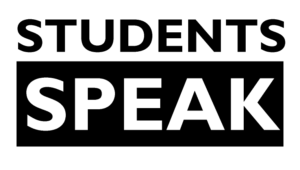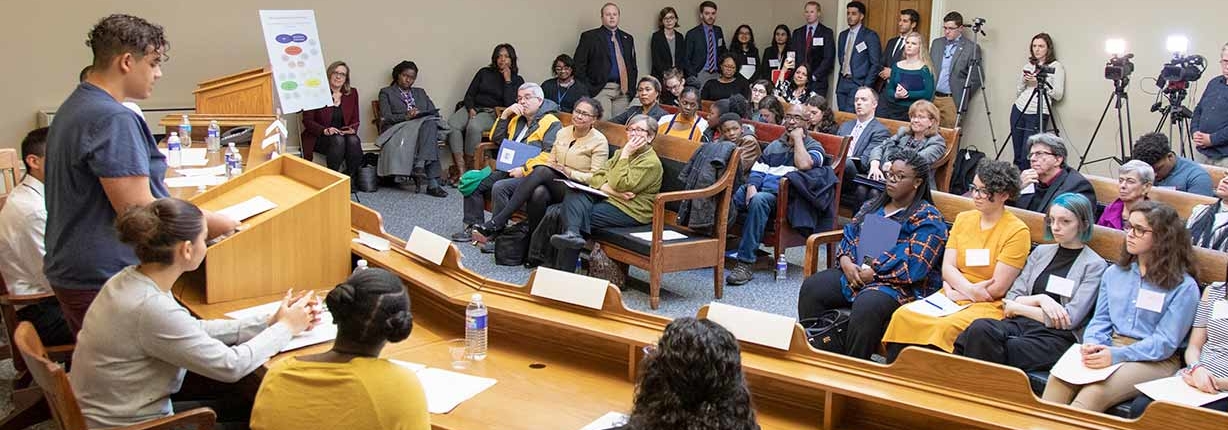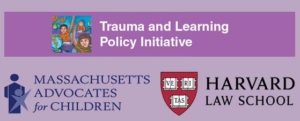Chris
My name is Chris. I am a junior in high school. I would like to speak for myself and the many students I know who have special education Individual Education Plans called IEPs. My IEP is for and there are many accommodations on it, like being allowed to use a fidget toy or being allowed to take breaks and pace in the hallways when I get anxious. At this point I feel safe and supported as I look toward my senior year and my plans to attend Bunker Hill Community College when I graduate. But it has not always been easy and I want to share things that helped me and that I believe can help students with IEP have better success in school.
When I started as a freshman in 9th grade, regular education teachers did not always know about my IEP and those who did were not trained in how to implement it. For example, once in 9th grade, the teacher didn’t know about my IEP and kicked me out of class. It happened when he grabbed the fidget away. When I reacted he didn’t know how to help me de-escalate, even though all that is on the IEP.
I feel very lucky because over time I did learn to adjust to regular education. I would like to tell you what helped me do well and speak for students with IEPs who weren’t so lucky as me.
One thing I benefitted from was I have a mother who was on top of my IEP every day. She would email the teachers and be sure the IEP was getting implemented. My mom had a phone and an email at work, but I feel like there are lots of families that don’t have access to those resources to help their students and don’t know how to help Could parents be encouraged to help the teacher implement the IEP? Could there be training for the teacher and the parents to work together?
Second, I benefitted from special ed teachers who helped me see that the IEP was there to help me. So many students don’t think of the IEP a something positive; it is more like something to be embarrassed about. We shouldn’t feel second class for having an IEP. I personally am able to be open with my teachers when I need help. But other friends feel they have to keep their IEPs secret because if you admit you have an IEP when you are slower in class or don’t understand the questions, students view you differently and often start calling you words like “retard” or “stupid”, or “SPED”. That feels awful. Chelsea High has good policies on bullying but the students are careful to whisper or say things without getting caught. You have to know how to respond in a powerful way to get them to stop. Students with IEPs and students without IEPs need training to see special education as positive. Can non special ed students learn that everyone has challenges? Can we make peace? Can this bullying stop?
Third, I want to say that learning to self-advocate for myself helped me. I now keep my IEP in my backpack and pull it out if I need to show a teacher who doesn’t understand or gets angry when for example, they see me taking a break in the hallways to address my anxiety. I learned how not to get bullied because I am so verbal and I defend myself. And importantly, I don’t feel second class! However, a lot of the students with IEPs don’t have the same vocalizations as me and don’t know how to defend themselves or self-advocate. I would like students to understand their IEPS and be able to communicate their needs. There should be training for everyone on how to stand up for themselves when other students put them down or the teacher doesn’t have the IEP or know how to implement it.
Finally, it would go a long way to help if there were teachers from the community who could understand the needs of students of color. I think the lack of understanding plays a big role in students’ having a bond with teachers. I feel like if more teachers understood our backgrounds, things would go better because teachers would know how to talk to students and have relationships with them. Students often put their guard up because teachers can’t relate to the students. If teachers understood our backgrounds, they might know how to de-escalate situations better and make it easier for students
Thank you for this opportunity to tell you about my vision for a school where everyone belongs and feels safe and can achieve.
“I benefited from special ed teachers who helped me see that the IEP was there to help me. So many students don’t think of the IEP as something positive; it is more like something to be embarrassed about. We shouldn’t feel second class for having an IEP.” —Chris
“I feel like if more teachers understood our backgrounds, things would go better because teachers would know how to talk to students and have relationships with them.” —Chris


